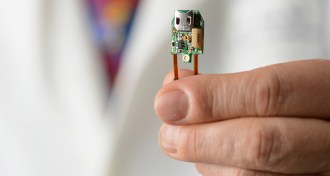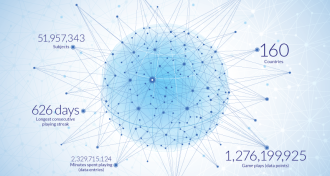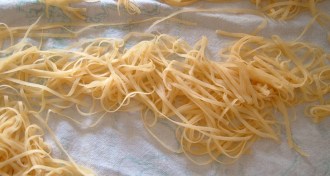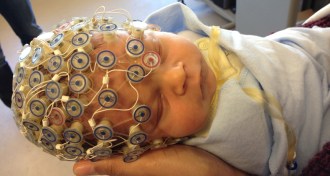
Laura Sanders reports on neuroscience for Science News. She wrote Growth Curve, a blog about the science of raising kids, from 2013 to 2019 and continues to write about child development and parenting from time to time. She earned her Ph.D. in molecular biology from the University of Southern California in Los Angeles, where she studied the nerve cells that compel a fruit fly to perform a dazzling mating dance. Convinced that she was missing some exciting science somewhere, Laura turned her eye toward writing about brains in all shapes and forms. She holds undergraduate degrees in creative writing and biology from Vanderbilt University in Nashville, where she was a National Merit Scholar. Growth Curve, her 2012 series on consciousness and her 2013 article on the dearth of psychiatric drugs have received awards recognizing editorial excellence.

Trustworthy journalism comes at a price.
Scientists and journalists share a core belief in questioning, observing and verifying to reach the truth. Science News reports on crucial research and discovery across science disciplines. We need your financial support to make it happen – every contribution makes a difference.
All Stories by Laura Sanders
-
 Neuroscience
NeuroscienceHormone hampers effects of marijuana
Study of pot-blocking brain chemical in rodents could lead to new treatments for cannabis addiction.
-
 Neuroscience
NeuroscienceYear in Review: Obama unveils brain initiative
In April, the president announced an ambitious plan to reveal the human brain’s secrets.
-
 Neuroscience
NeuroscienceBad memories fade with a short jolt
Research illustrates the vulnerability of the brain’s information storage.
-
 Humans
HumansYear in Review: Language learning starts before birth
Babies seem familiar with vowels and words heard while in the womb.
-
 Health & Medicine
Health & MedicineYour youngest kid is three inches taller than you think
Mothers fall prey to the “baby illusion” and consistently underestimate the height of their youngest kid.
-
 Health & Medicine
Health & MedicineFor babies, walking opens a whole new world
Walking and talking are linked as babies develop, anecdote and data show.
-
 Neuroscience
NeuroscienceBrain chip enables injured rats to control movements
Prosthesis bypasses damaged area to connect distant neurons.
-
 Health & Medicine
Health & MedicineTV linked with brain changes in kids
A new study of Japanese children gives more reasons not to park kids in front of the tube.
-
 Neuroscience
NeuroscienceFear can be inherited
Parents’ and even grandparents’ experiences echo in offspring, a study of mice finds.
-
 Neuroscience
NeuroscienceGlobal neuro lab
With more than 50 million users, the brain-training website Lumosity is giving scientists access to an enormous collection of cognitive performance data. Mining the dataset could be the first step toward a new kind of neuroscience.
-
 Health & Medicine
Health & MedicineExperiments in pasta
In discovery mode, babies gather every bit of information they can about the world around them.
-
 Health & Medicine
Health & MedicineExercise while pregnant may boost baby’s brain
Babies born to moms who exercised during pregnancy showed higher levels of brain maturity.